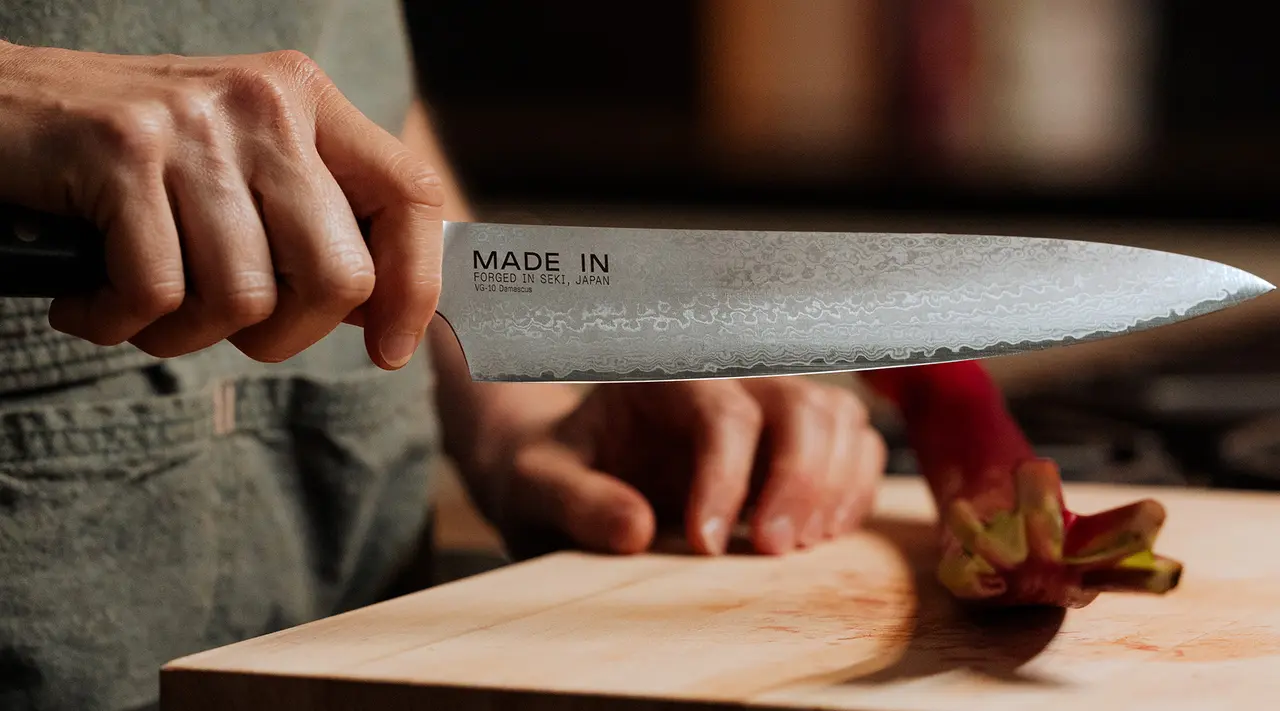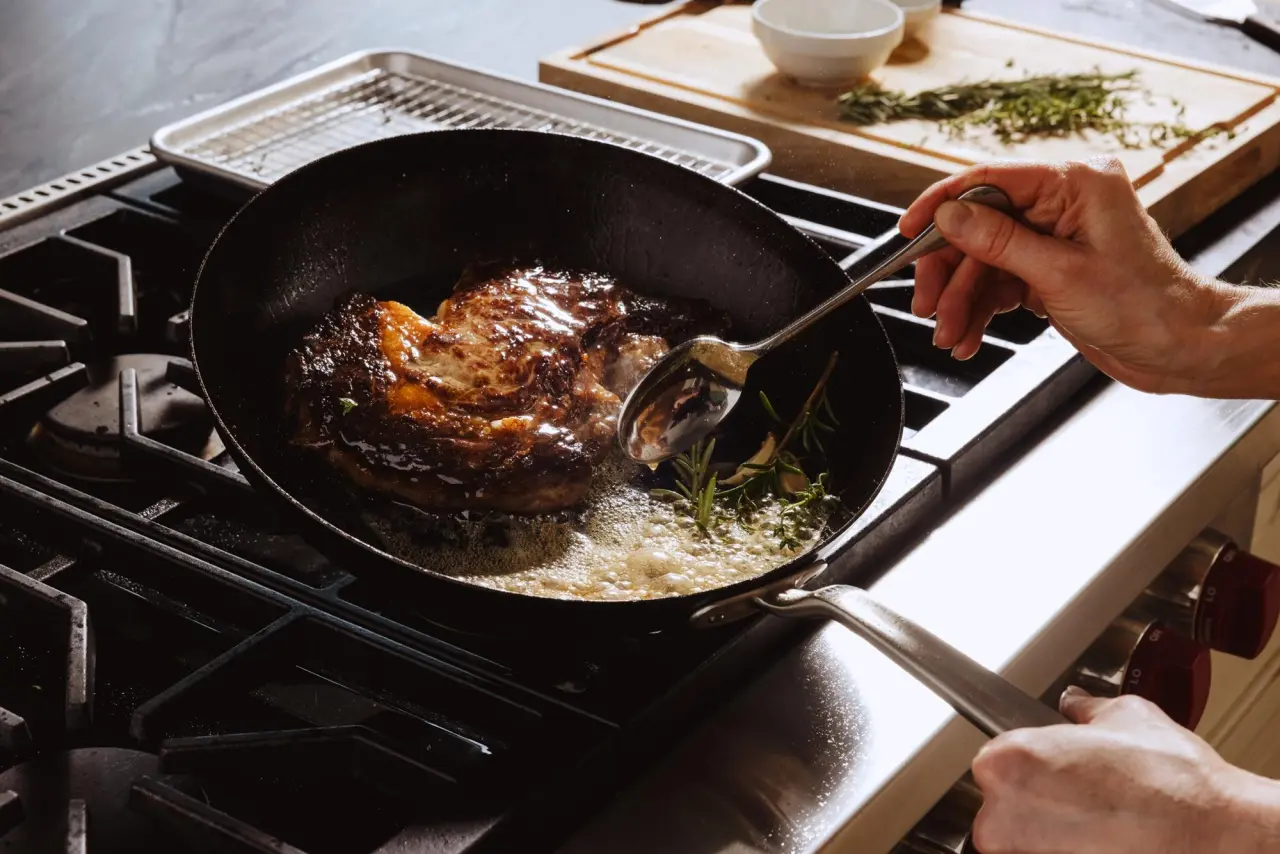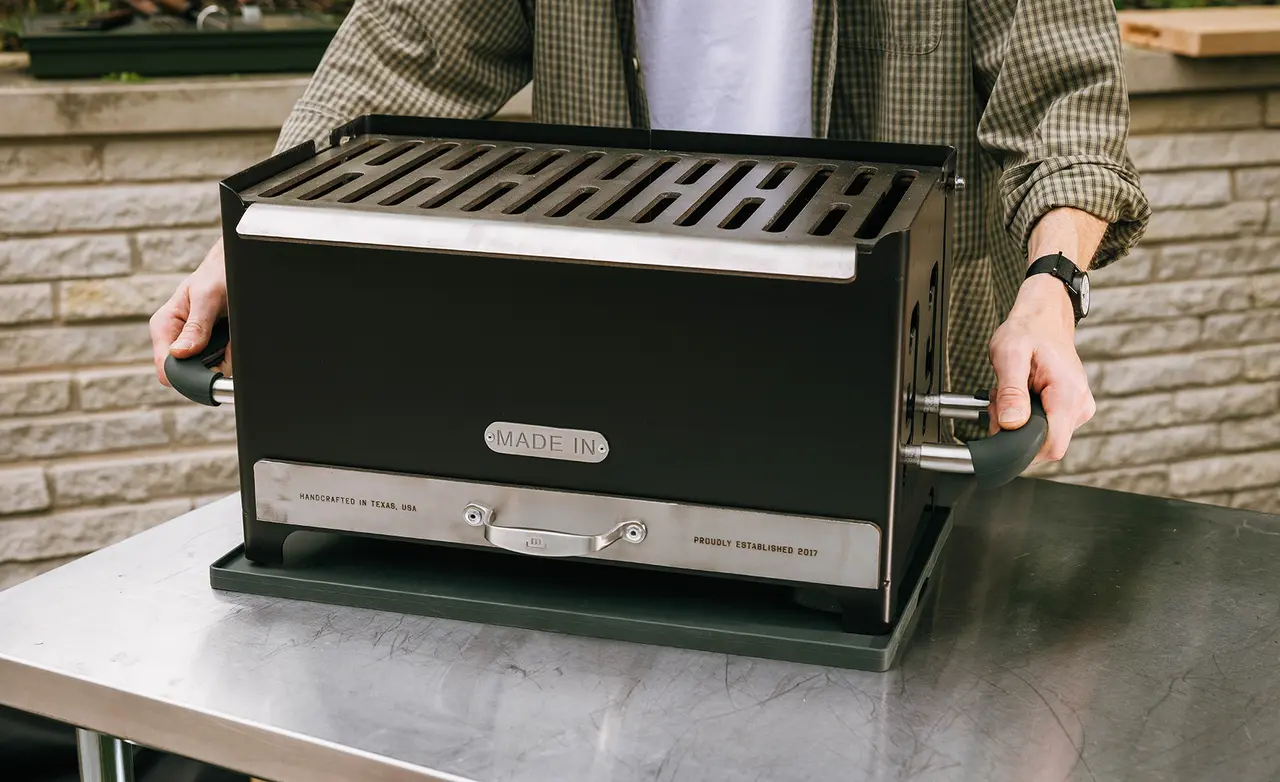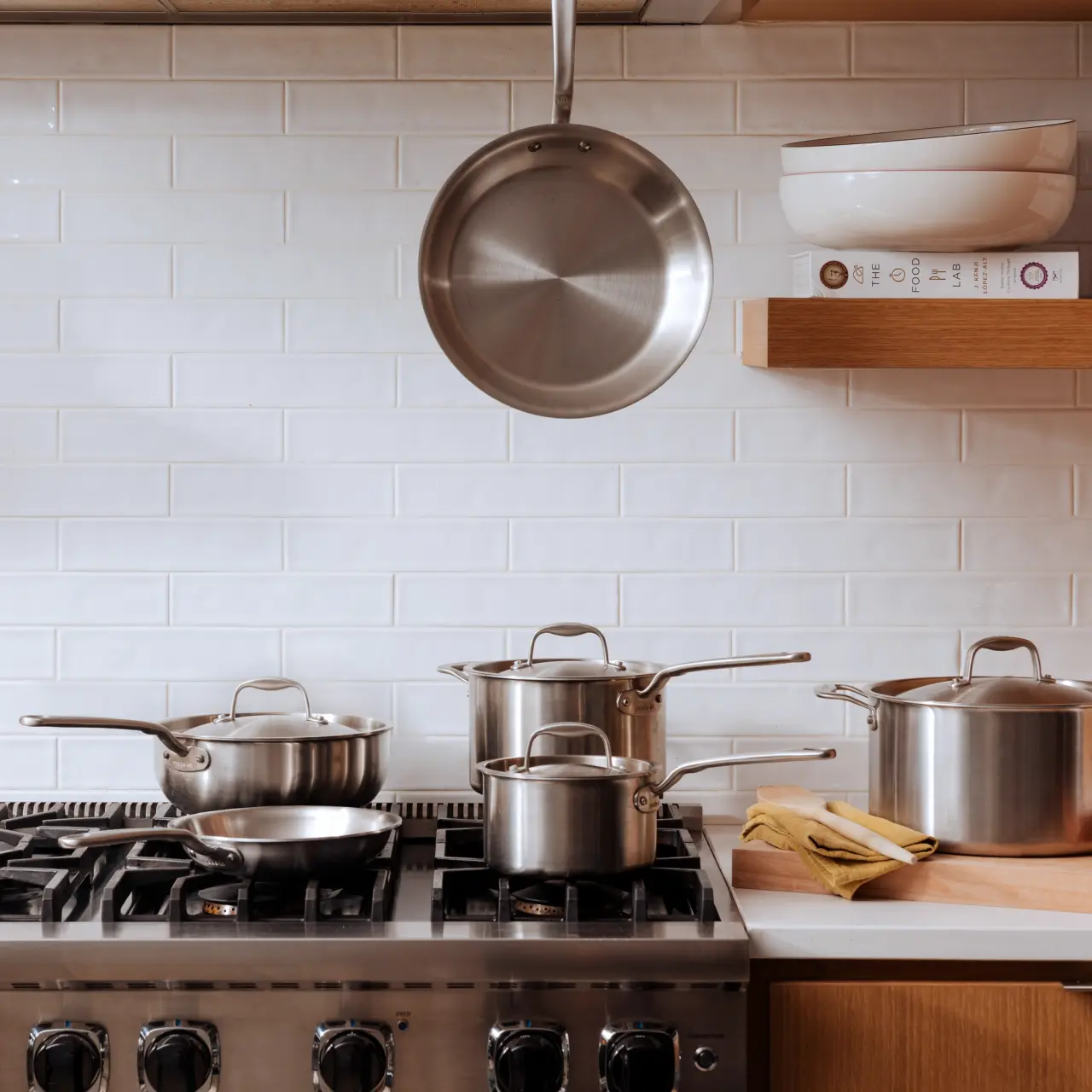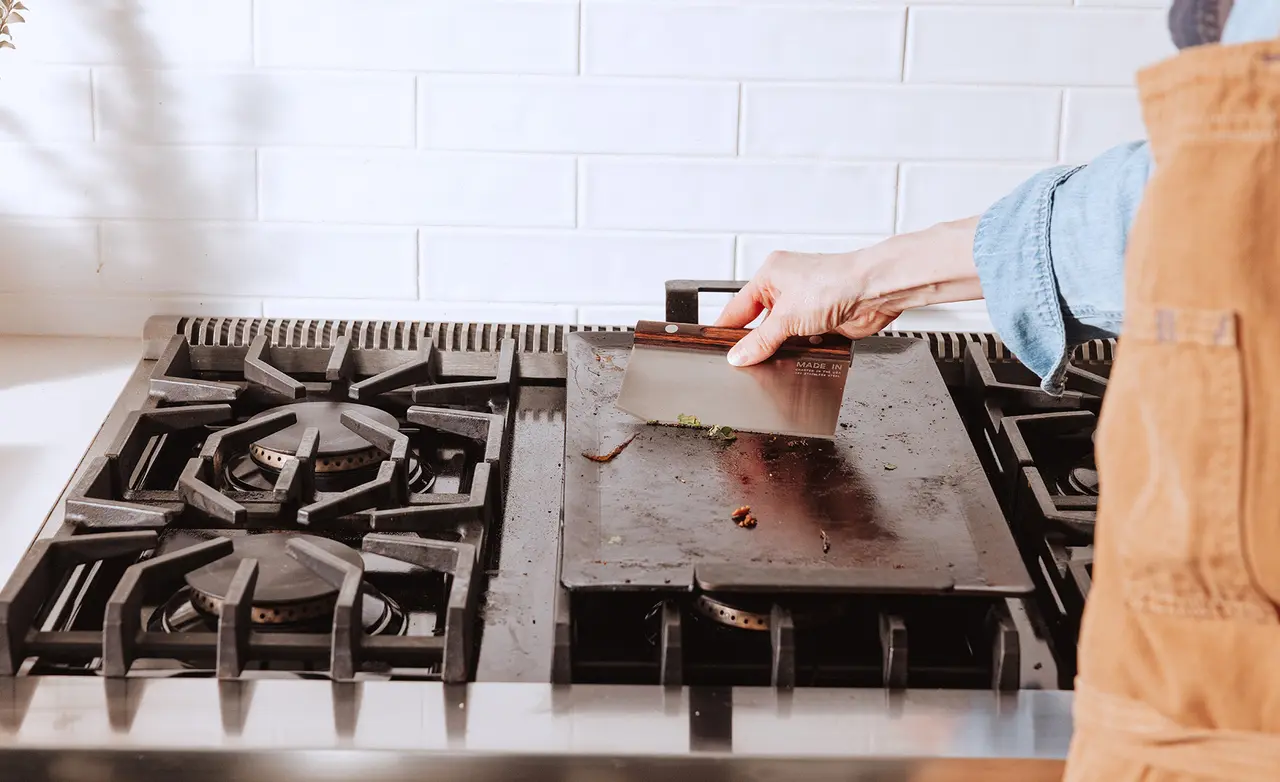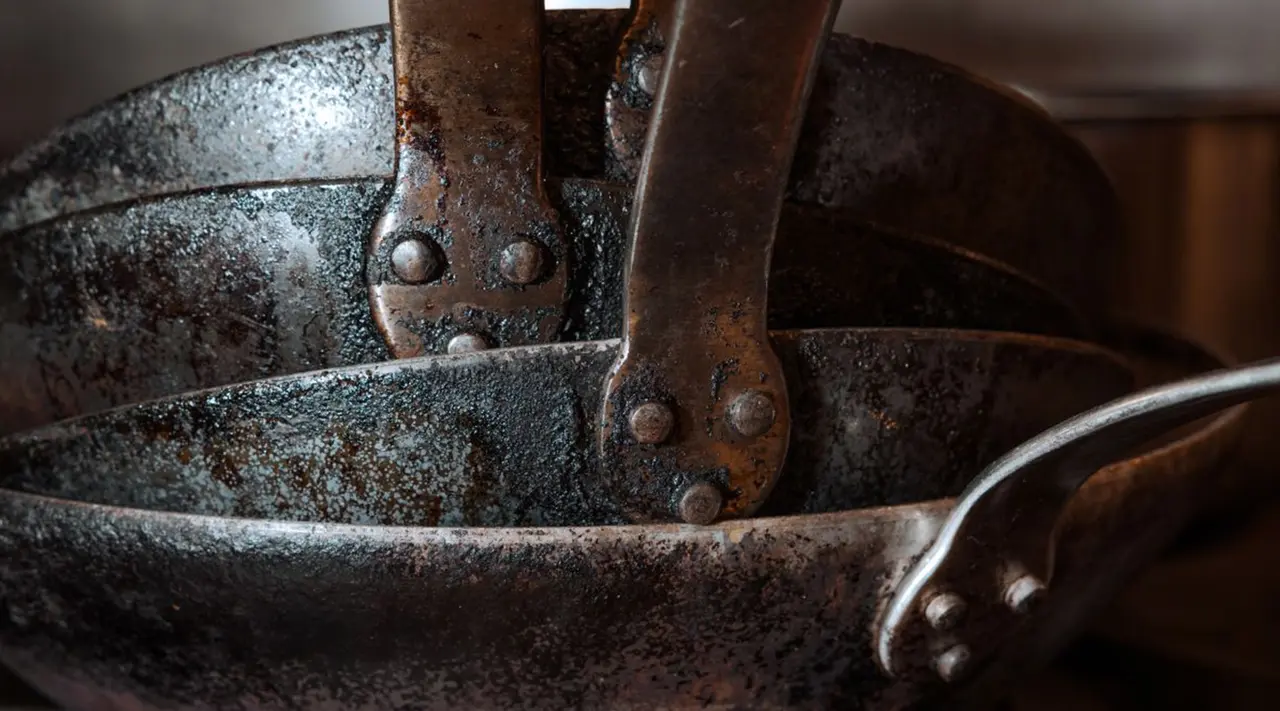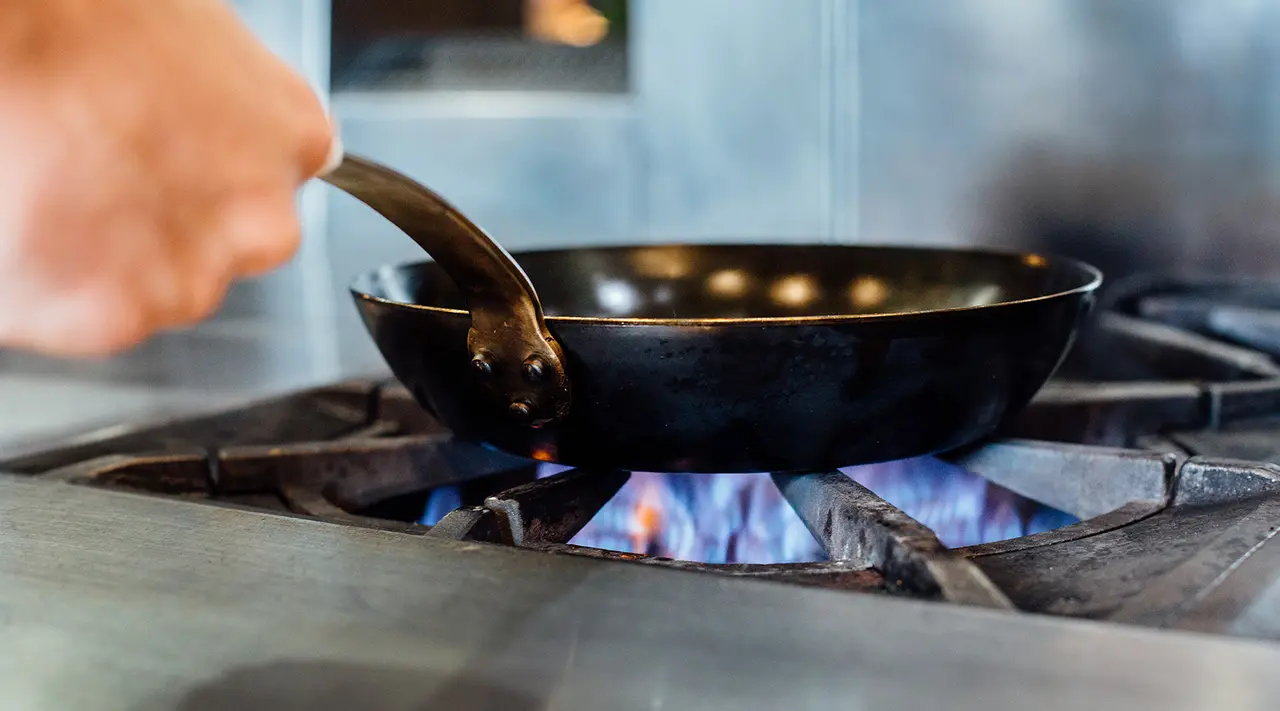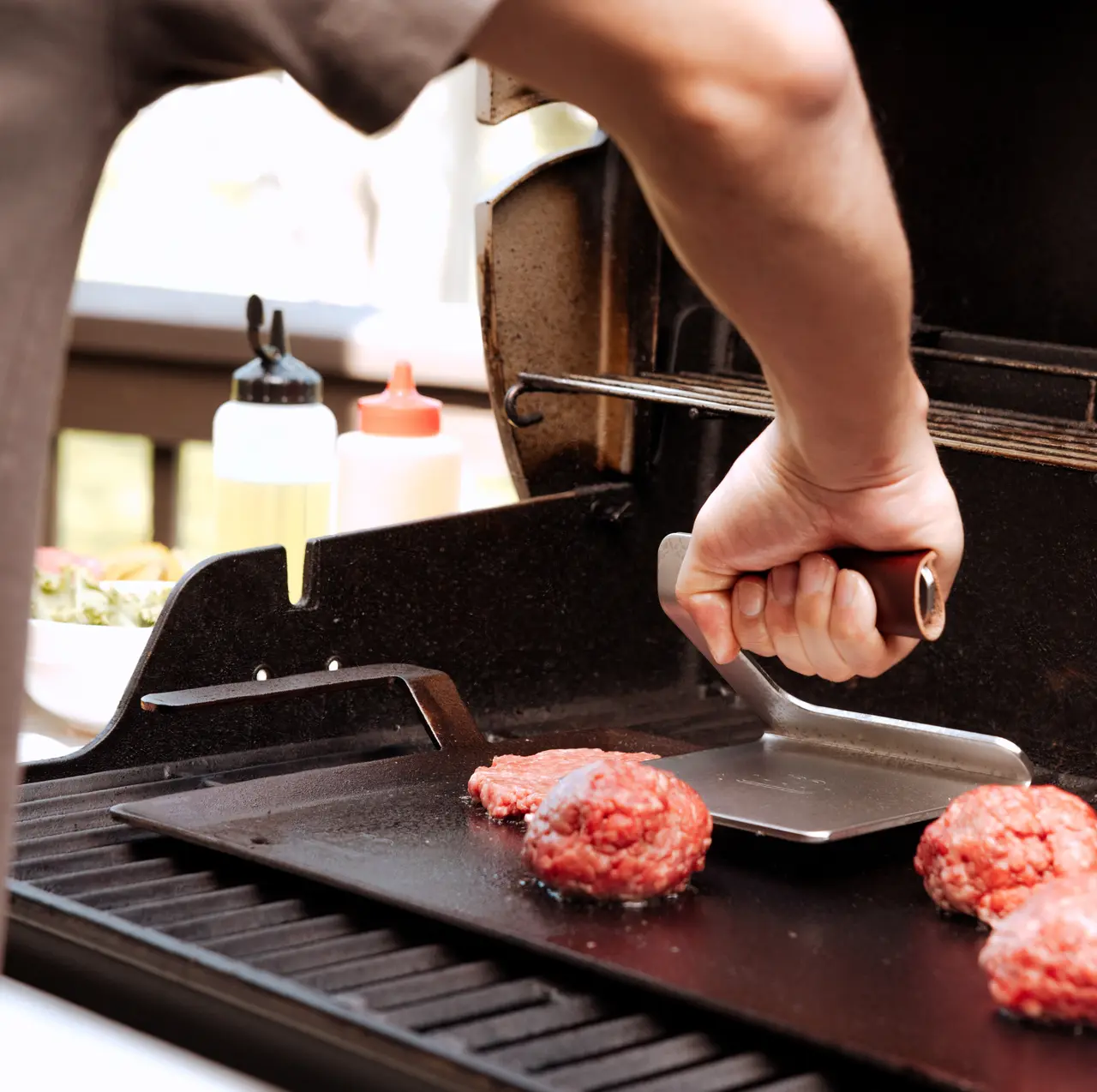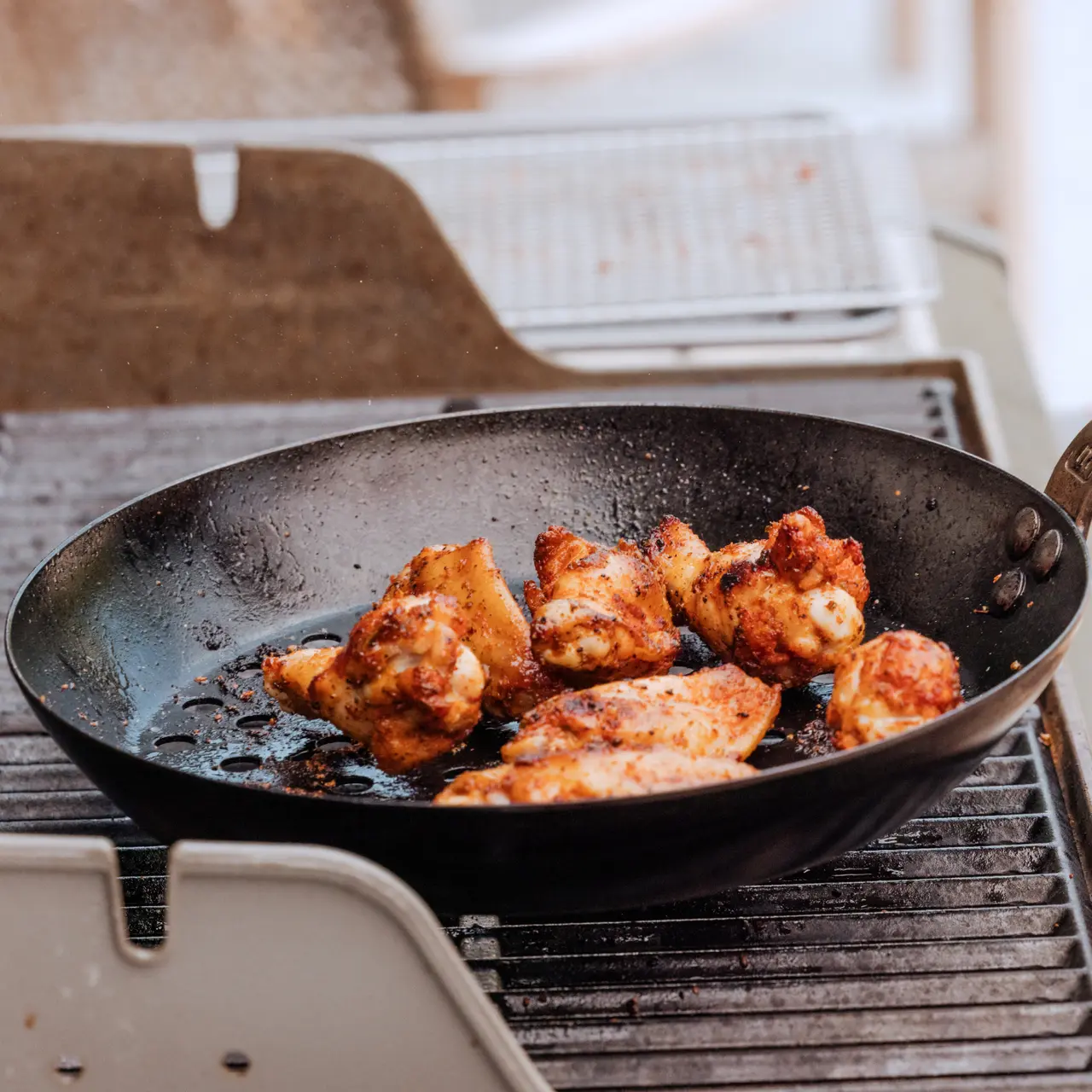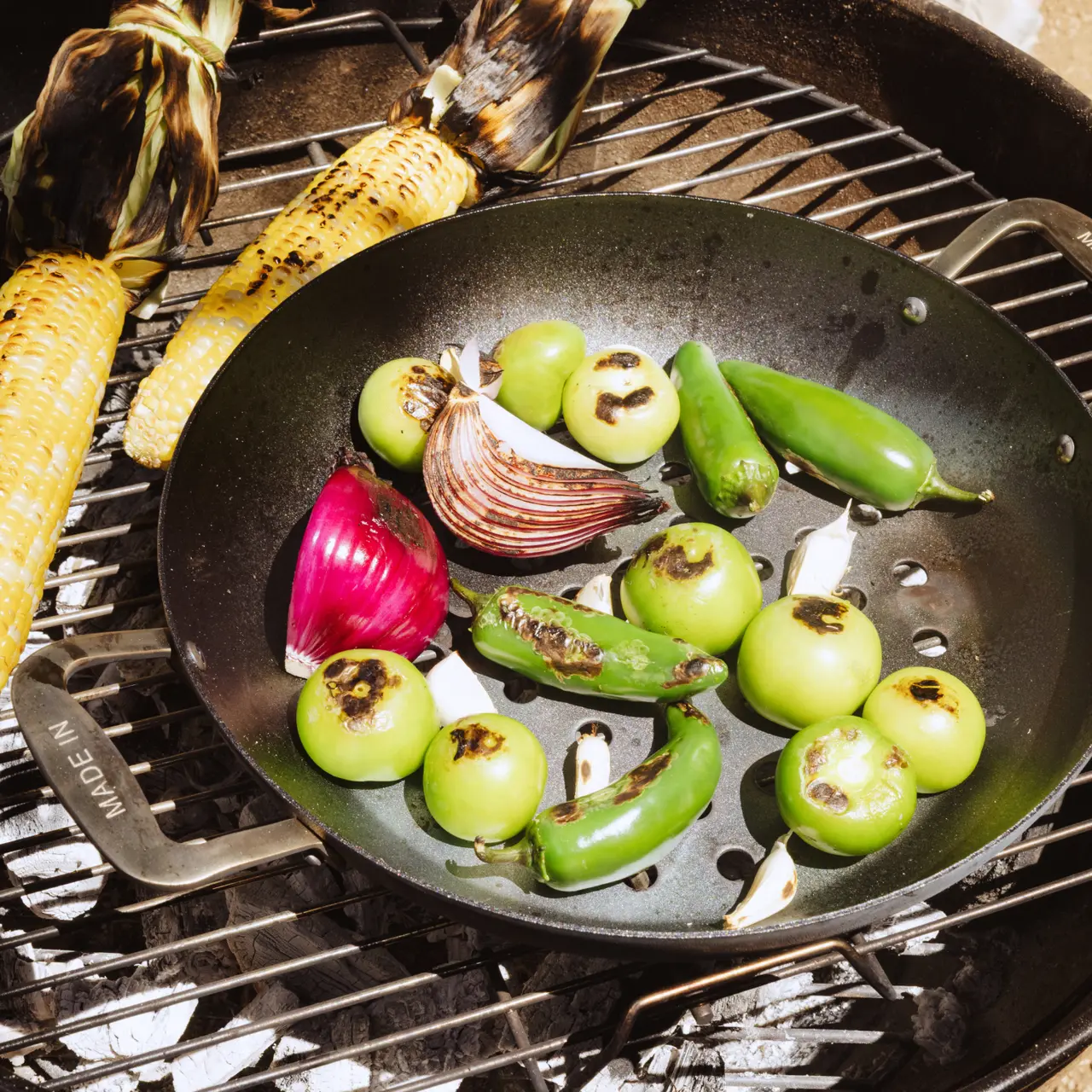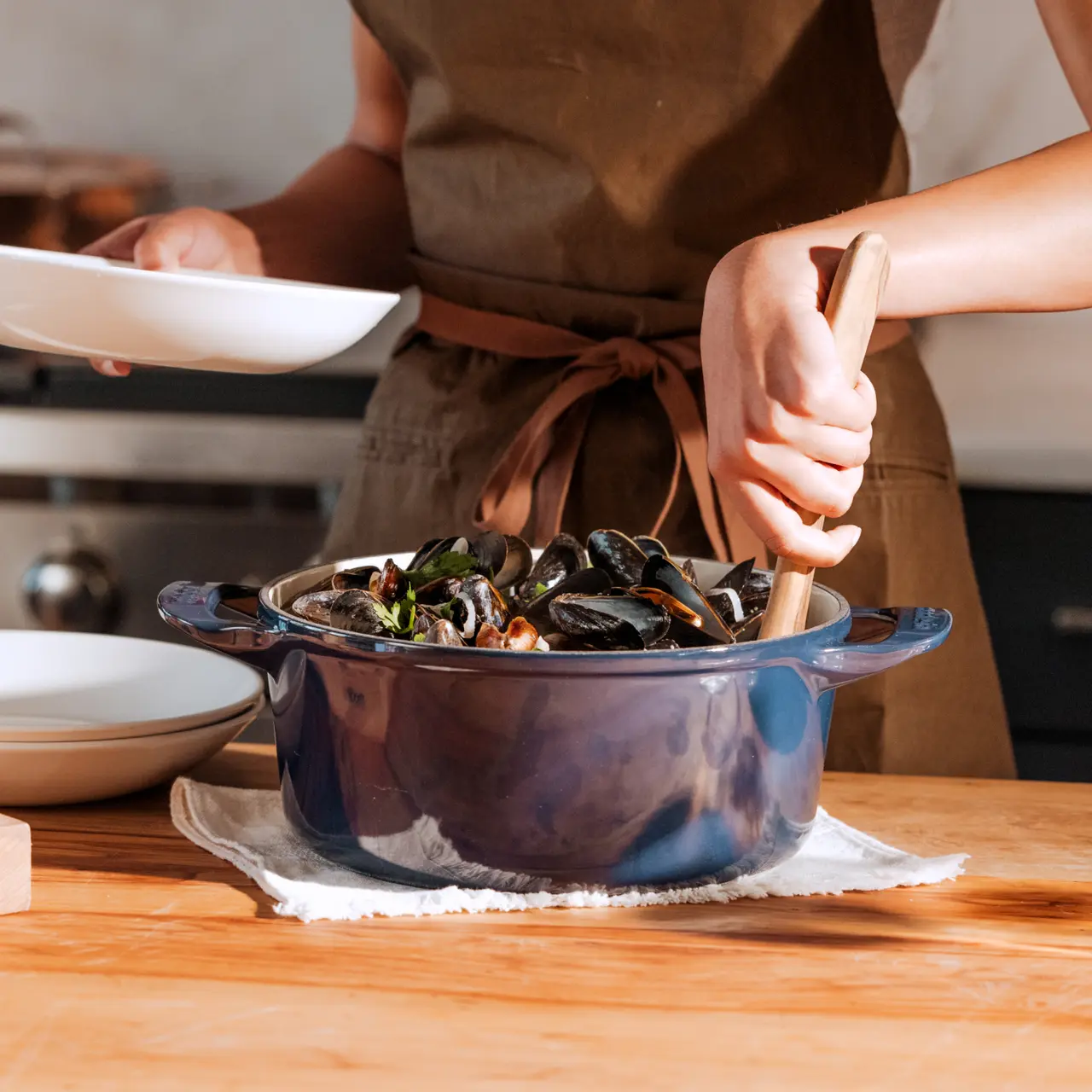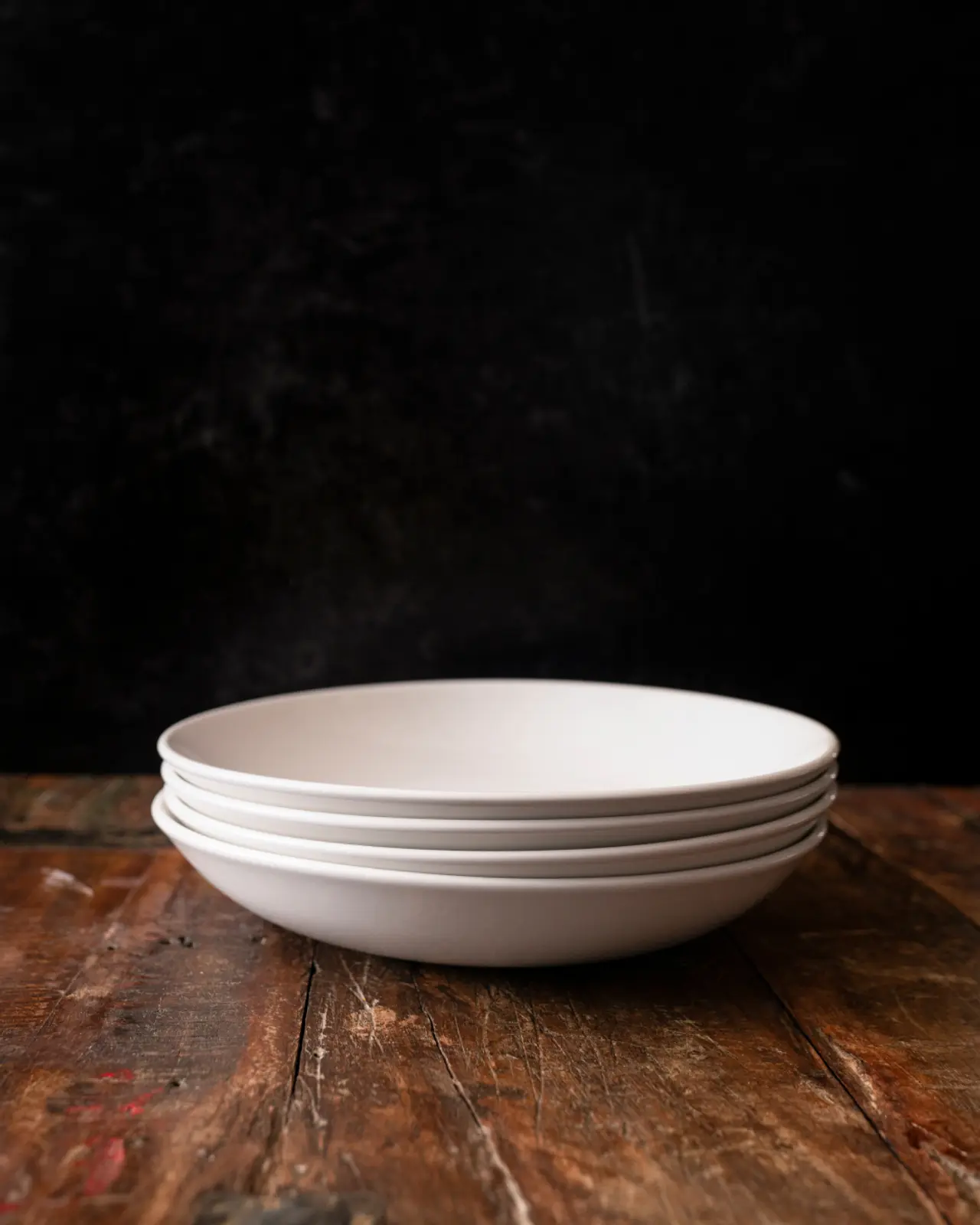So you’re contemplating a new Damascus Steel knife—or perhaps you’ve already taken the plunge and bought one or three? These special knives, characterized by the wavy look on the blades made from pounding individual layers of steel, are incredibly sharp, strong, and durable. Each knife is unique, making them a stunning edition to your kitchen toolset.
But they are still susceptible to rust. Actually, their higher carbon content means they are more susceptible to rust than other types of stainless steel blades. Don’t let that keep you from adding a Damascus Steel blade to your collection, though. With a little practice and routine maintenance, you’ll find it’s simple to keep your shiny new Damascus Steel blade from rusting.
Understanding Damascus Steel
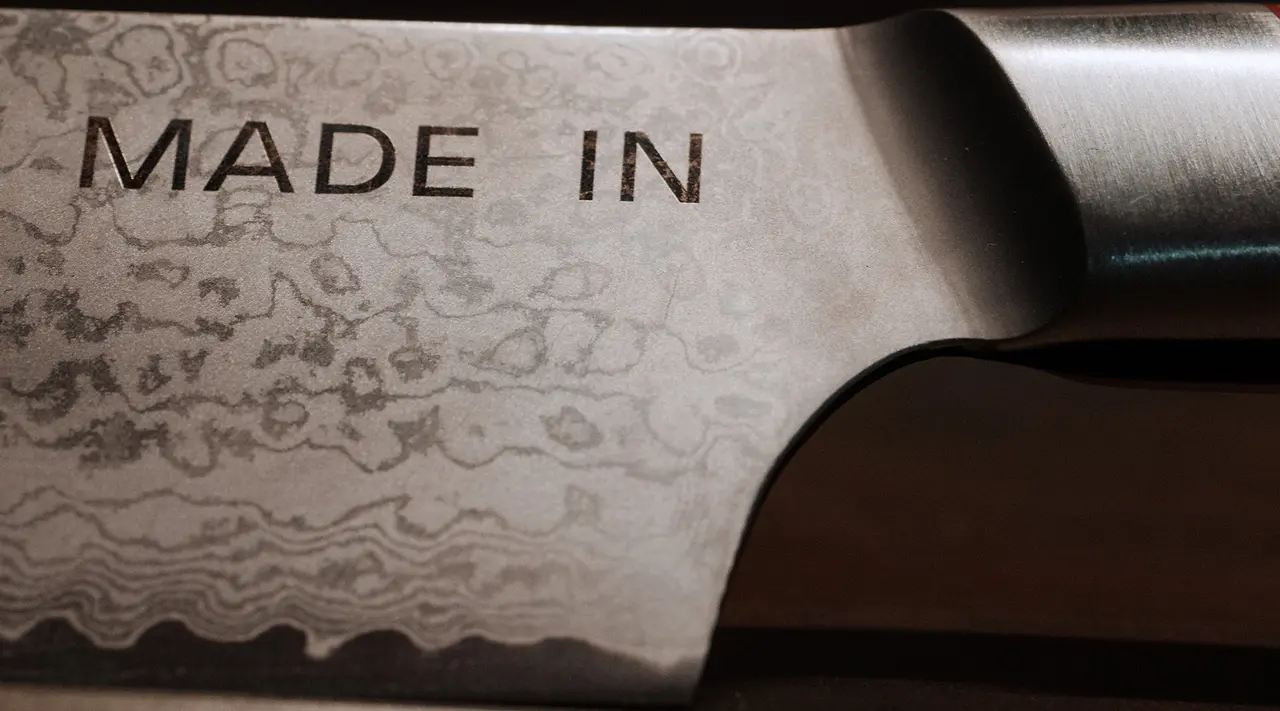
When you see the term “Damascus Steel” today, it’s referencing a specific style of knife characterized by a wavy pattern unique to each blade. Bladesmiths in South India first perfected the technique of forging alloys to create incredibly strong, beautiful swords and knives as far back as 500 AD. That process was known as ukku or wootz; the “Damascus” in the name likely comes from the Syrian city playing a role in making or trading the blades.
Made in Seki, Japan—known as “The City of Blades”—our Damascus Steel knives are full tang and perfectly balanced. The blade features a VG-10 core, which contains a higher carbon content than any knife in our collection. As a result, our Damascus Steel knives stay sharper, longer.
Does Damascus Steel Rust?
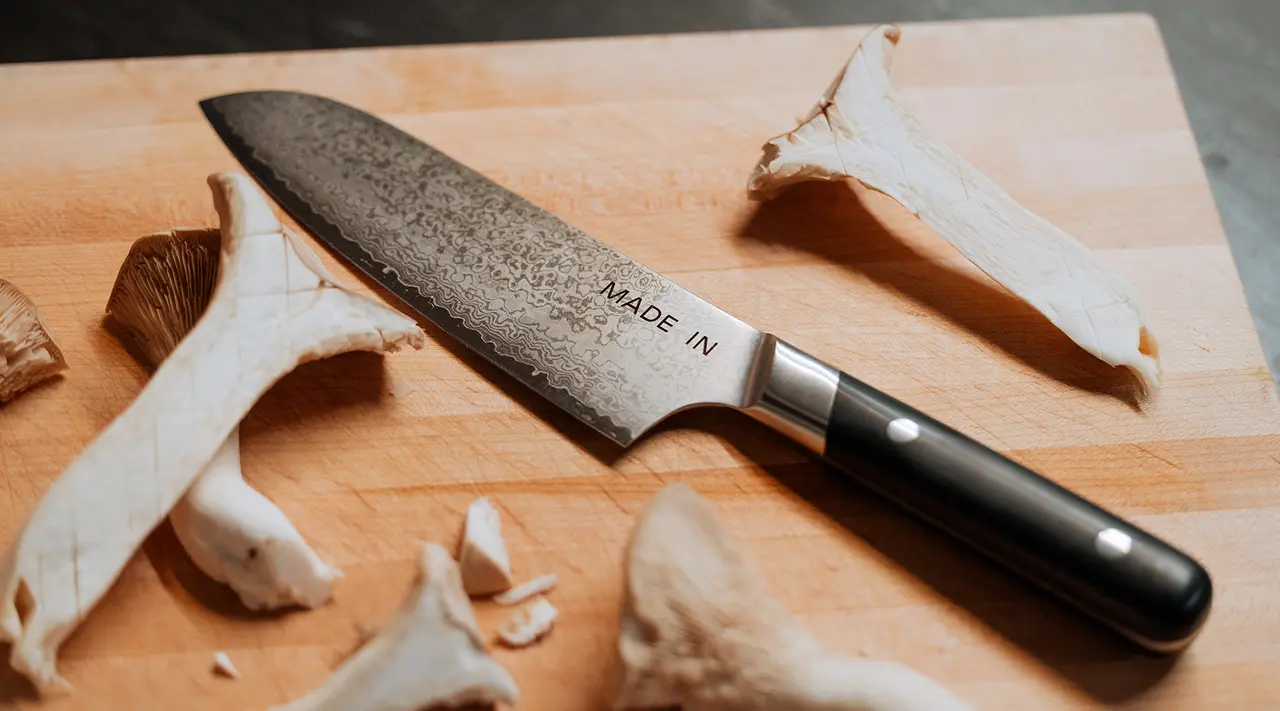
The higher carbon content in Damascus Steel means the blades are more susceptible to rust than other knives such as stainless steel. If you live in a particularly humid environment, then rust is more of a concern as well. With proper care and routine oiling, though, you can avoid rust damage on your Damascus Steel knives.
How to Prevent Damascus Steel Knives from Rusting
The most important steps to keeping your Damascus Steel knives from rusting are to clean, dry, and store them properly. If rust is present on your knife already, head to our guide on removing rust from knives for a step-by-step on removing it.
You already know this, but it’s worth repeating: Always clean your knife after each use. Gently remove any food debris with a soft dishcloth or sponge, then wash the blade with warm, soapy water. Don’t use abrasive materials like steel wool or cleaning products with chloride, as these have the potential to damage blades and make them more prone to rust. (Avoid the dishwasher, too, which will expose the knife to too much moisture and harsh detergents.)
After cleaning, thoroughly dry the knife with a clean, soft towel. Remember, moisture is the enemy of any knife, but especially one with higher carbon content.
Store your knife in a dedicated space, whether it be a knife block, magnetic strip, or plastic sheath. It’s generally best to avoid leather sheaths for long term storage, as they can pick up moisture and expose the blade to moisture.
General Maintenance Tips for Damascus Steel Knives
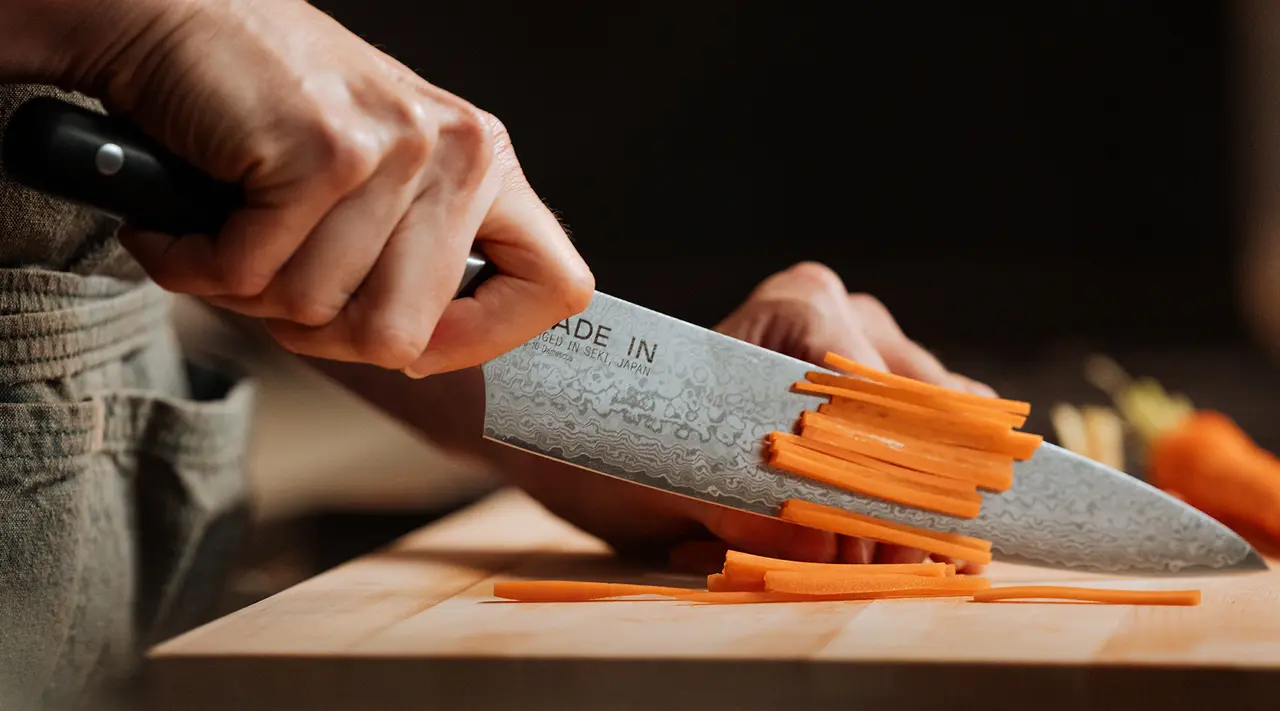
In addition to proper cleaning and storage, there are a few specific actions you can take to keep your Damascus Steel Knives sharp and shiny.
Regular Sharpening and Honing
Like the old adage about teaching a person to fish, once you know how to properly sharpen one knife, you can take that technique and apply it to others. Sharpening a Damascus Steel knife is no different from how we recommend sharpening our other blades. We prefer to use a sharpening stone (as opposed to an electric sharpener), which offers more control and is more gentle on the blade. Check out our guide on sharpening Damascus Steel knives for more instruction.
For standard home kitchen use, you should only need to sharpen your knife every six months or so. Sharpening removes steel from the blade, creating a new, sharp edge. Honing, on the other hand, realigns the blade’s edge with a honing steel or rod. You can run your knife over a honing steel much more frequently—some people do it before every use, even. Read about honing versus sharpening for more details.
Oiling the Blade
Similar to carbon steel and cast iron, a little oil goes a long way in protecting against rust. Regular oiling will create a moisture barrier and build up a patina on the blade. After washing and drying your knife, gently buff a small amount of mineral oil or another neutral, flavorless oil into the blade, in the direction of the grain.
If your Damascus Steel knife is more of a collectors’ item than a tool used daily, it’s important to stay on top of oiling the blade—we recommend once a month or so to keep rust at bay whenever you reach for it.
Handling and Usage Tips
Knives can be intimidating, especially sharp, strong, beautiful ones. Make sure to use proper knife handling techniques—we’re partial to the pinch grip, where your dominant hand grips where the base of the handle meets the blade.
To keep that blade sharp, use a wooden or plastic cutting board, which provide a sturdy but soft landing spot for the blade. Avoid other cutting board surfaces such as glass, stainless steel, and marble—these may be aesthetically pleasing, but these materials are too hard and will damage your blade.
Above all, go in with confidence and pay attention to what you’re doing. (Good life advice in general, no?) You’ll be chopping like a pro in no time.
Ready to Shop?
Though Damascus Steel Knives can rust, with the right knowledge you’ll be ready to prevent it or tackle it head on, keeping those blades shiny and sharp. Whether you’re looking to upgrade your knife collection or just starting out, the sleek, beautiful design of our Japanese-made Damascus Steel Knives makes a worthy addition to your toolset.
